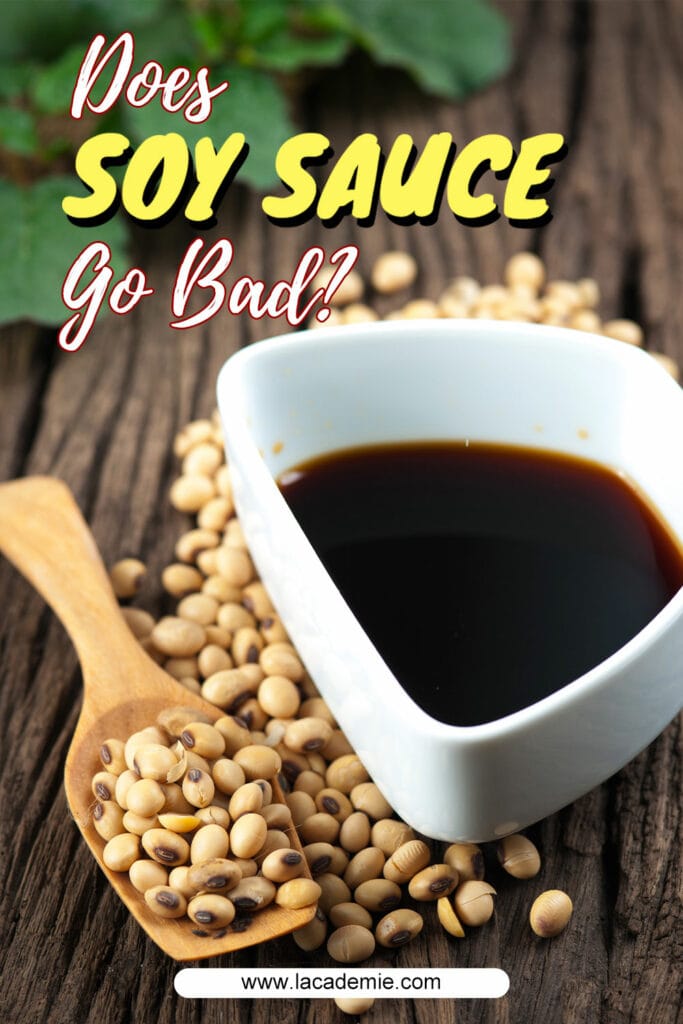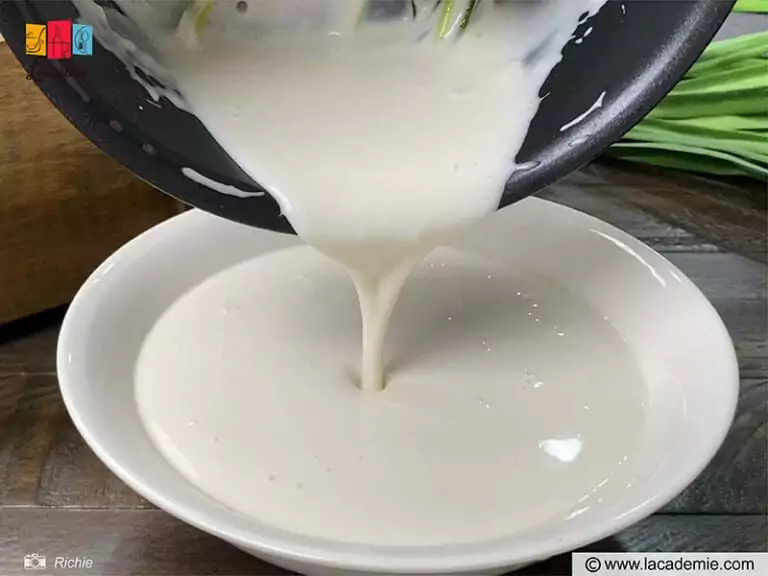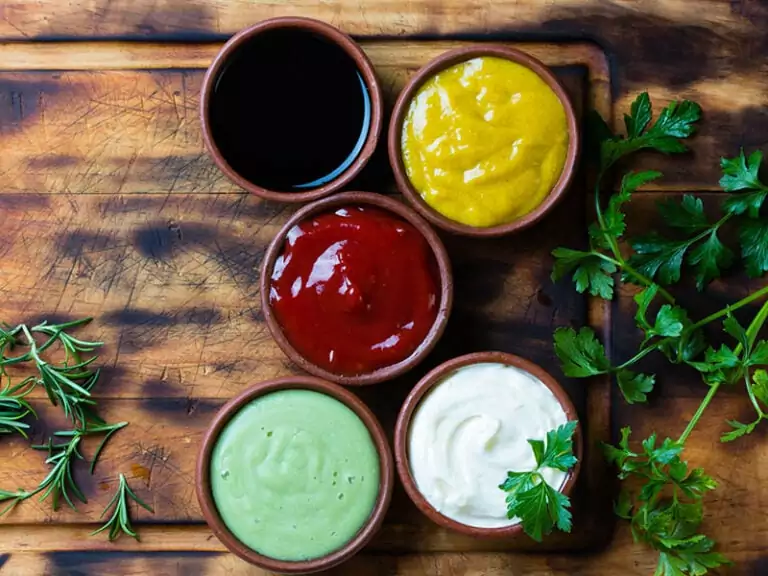Are you asking yourself, “does soy sauce go bad”? Soy sauce is a must-have condiment in sushi and other dishes that belong to Asian cuisines. It adds a savory flavor to various dishes. I guess that you have one, too.
It takes a long time to consume a whole bottle of soy sauce because each time, you just need a little of it. As such, you need to know about the shelf life of soy sauce as well as the spoilage symptoms to know when it is safe to eat and when it is not.
And this is what I will give you in this article. I will guide you through the shelf life of soy sauce, the signs of spoiled soy sauce, and how to store it properly to increase its shelf life. If you cannot live without soy sauce, read on!

Anyway, Does Soy Sauce Go Bad?
The short answer is yes. However, it rarely happens unless the soy sauce is contaminated. Soy sauce can be stored for up to 3 years, given that it is stored properly. Unopened soy sauce will last forever, but it tastes best when consumed within 3 years.
Although I have provided you the answer, it is just a broad and general one. There are many factors that determine the shelf life of soy sauce. Your soy sauce may not last long if you don’t store it correctly.
But you don’t have to worry because I will give you everything you need for your soy sauce to last as long as possible.
Overview Of Soy Sauce
I guess that you know about soy sauce already. In case you bought soy sauce for the first time, let’s find out what it is. Even when you are already familiar with soy sauce, this part will give you some interesting information about soy sauce that you may not know.
What Is Soy Sauce?
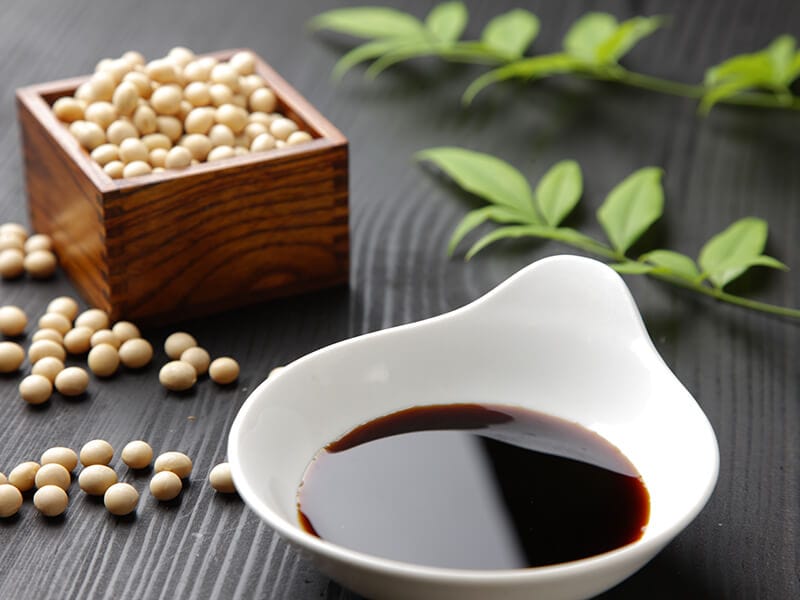
Soy sauce comes from China, but it is also very popular in other Asian countries, such as Japan and Korea. It is popularly used as a condiment for marinating meat or dipping sauce. Most notably, soy sauce is a must-have accompaniment with sushi, a staple Japanese dish.
Soy sauce has a dark brown color and a semi-thick texture. It is thicker than water but not as thick as soup and other sauces, such as tomato sauce. You should know that there are several variants of soy sauce. Some varieties have slightly different tastes and textures from others.
As the name already tells you, soy sauce is made mostly from soybeans. There are 2 methods to make soy sauce. The traditional one is to boil soybeans, add in wheat and salt, and ferment the mixture from several months to several years.
A faster method is to heat soybeans at a high temperature and add hydrochloric acid. This method just takes several days to make soy sauce. However, it is not as flavorful as soy sauce made by the traditional method.
Soy sauce is loaded with a high amount of sodium, so it is not suitable for those who strictly follow a gluten-free diet. However, there are some variants that are gluten-free, which I will show you right away.
Are you curious about how soy sauce is made? Here is your answer.
Shoyu And Tamari, Are They Soy Sauce, Too?
There are hundreds of soy sauce variants. The most popular names are Shoyu and Tamari. Are they the same as soy sauce? Let’s find out.
Shoyu is just the name of Japanese-style soy sauce. Although most can’t tell shoyu and soy sauce apart, many people claim that their minute difference is one of the aspects that set Chinese and Japanese food apart.
Tamari is the wheat-free variant of Japanese soy sauce. It is made from the traditional Chinese method. It contains only soybeans. Therefore, tamari is suitable for those who want a vegan and gluten-free substitute for soy sauce.
Don’t hesitate to explore other kinds of soy sauce. Let’s see this video to collect more understandings:
The Ultimate Guide On The Shelf Life Of Soy Sauce
Let’s discover the shelf life of soy sauce in more detail. For convenience, I made a table about the shelf life of soy sauce for you. Check it out!
Unopened Soy Sauce
Can you believe this? Unopened soy sauce can last forever at room temperature and in the fridge. This is because soy sauce goes through a fermentation process. Nevertheless, it does not mean that it tastes good forever. Its quality will decrease after 2-3 years.
Let’s talk a bit about history here. Fermentation was done long before the invention of the fridge. At that time, people found that when salted, the food lasts longer in the condition that it is tightly sealed.
So, as long as soy sauce is unopened, you can keep it for an indefinite amount of time. However, to maintain its peak flavor, I recommend that you use it within 2-3 years.
Opened Soy Sauce
Once you open a bottle of soy sauce, it can be safely stored either at room temperature or in the fridge. However, it does last as long as when it is unopened since frequent exposure to air will cause the oxidation process, which deteriorates its quality more quickly.
Depending on the storage condition, an opened bottle of soy sauce can stay outside for 3-6 months. If it is refrigerated, it can last for 2-3 years.
Shoyu/ Tamari
Similar to ordinary soy sauce, shoyu and tamari won’t spoil if they are unopened and stored at room temperature. However, their qualities will not be the same as they used to be after several years. You should use them as soon as possible to enjoy their peak qualities.
Opened Shoyu and Tamari have relatively shorter shelf lives compared to ordinary soy sauce. It can last for 3 months at room temperature and 2 years in the fridge. After that, it will be less tasty but is still safe to consume.
Unwilling to consume expired tamari? Fortunately, there are quite a lot of easy-to-find tamari replacements right in your kitchen. With a few tweaks here and there to your recipe, you’ll find that adding that savory umami flavor to your dish is easy as pie.
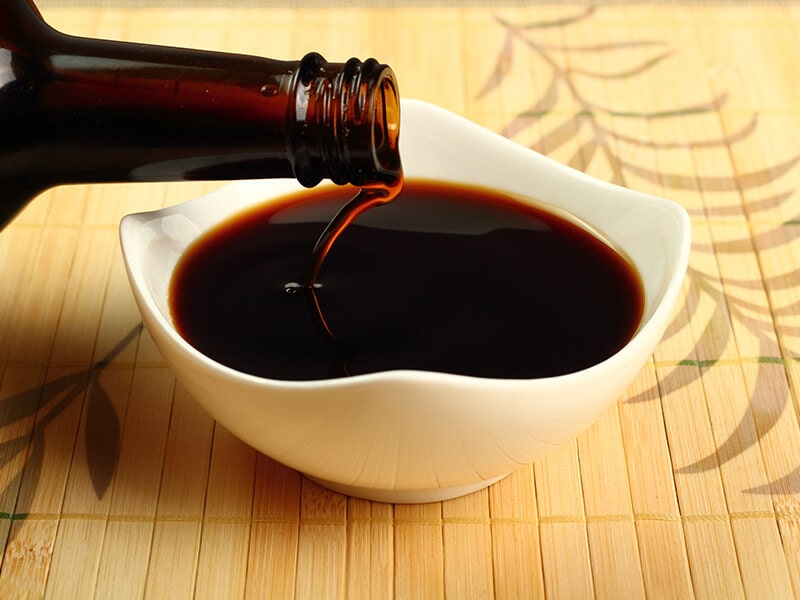
Signs Of Bad Soy Sauce
Although soy sauce does not often go bad, you should know the signs of spoiled soy sauce to prevent the chance of eating them. Here is what you must keep in mind.
Appearance
Since soy sauce has a dark color, it is not easy to detect any discoloration. A change in color does not necessarily mean that it is spoiled. It is just a result of the oxidation process.
However, when you clearly see mold and impurities in the sauce, it is seriously spoiled and can cause foodborne symptoms. You must discard it right away.
Smell
Soy sauce can have an overpowering odor, which will make you hesitate to smell it at a close distance. That smell is not unpleasant. However, when it becomes too awful and makes you feel sick, don’t keep it any longer.
Taste
When you don’t remember how long you have stored it or you are not sure about the quality of your soy sauce, you should taste it a little bit before deciding whether it is still edible. Soy sauce has a strong salty taste. If you feel a little bit of bitterness, it is not safe to eat.
Texture
As I have mentioned, soy sauce should have a semi-thick texture. If you pour it out and see that it is too watery, it is probably spoiled. You should get rid of it and buy a whole new bottle.
However, some kinds of soy sauce have a slightly watery texture, so you should compare the texture of the sauce with the original texture when you open it for the first time.
Don’t let your soy sauce go to waste without making this soy sauce noodles recipe. Watch this video:
Storing Soy Sauce Is Easy With These Methods
Believe me! Storing soy sauce is extremely easy and effortless. Once you store it properly, you don’t have to be afraid of spoilage symptoms. Soy sauce can be stored safely at room temperature and in the fridge. Here is the detail.
At Room Temperature
This is the most common way to store soy sauce. Since soy sauce is used quite frequently, you want it to be within your reach. The wonderful news is that soy sauce is perfectly safe at room temperature. Feel free to place them on the counter or the shelf, wherever you like.
Storing soy sauce is easy, but there are some notes that you should remember and strictly follow in order to optimize the shelf life of soy sauce.
- Use the original container.
- Always keep the lid closed. Otherwise, the soy sauce will be contaminated and oxidized, making it spoiled.
- Place the bottle in a cool, dry, and dark place. Never let it interact with the sunlight.
- Never store it near the stove or any heat source. Heat will degrade soy sauce quality much faster.
Stick to this guide, and you can enjoy soy sauce with other dishes within several months.
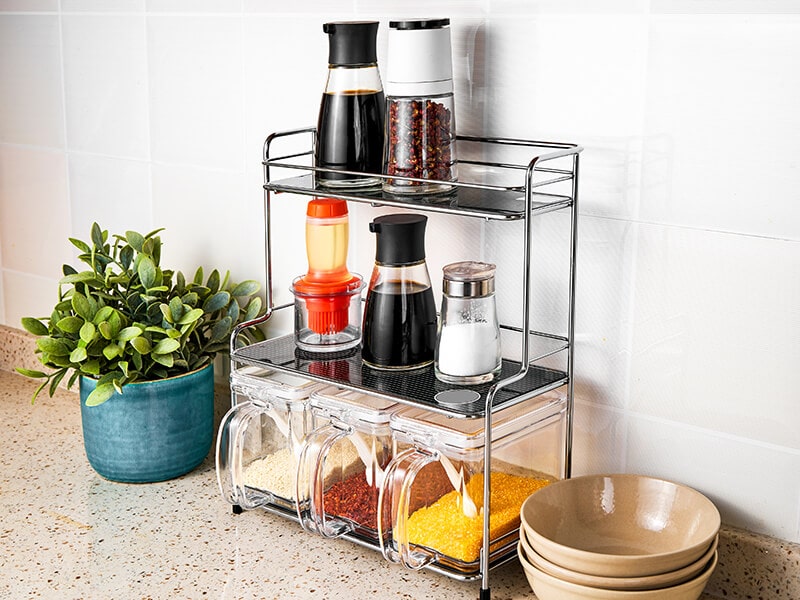
In The Fridge
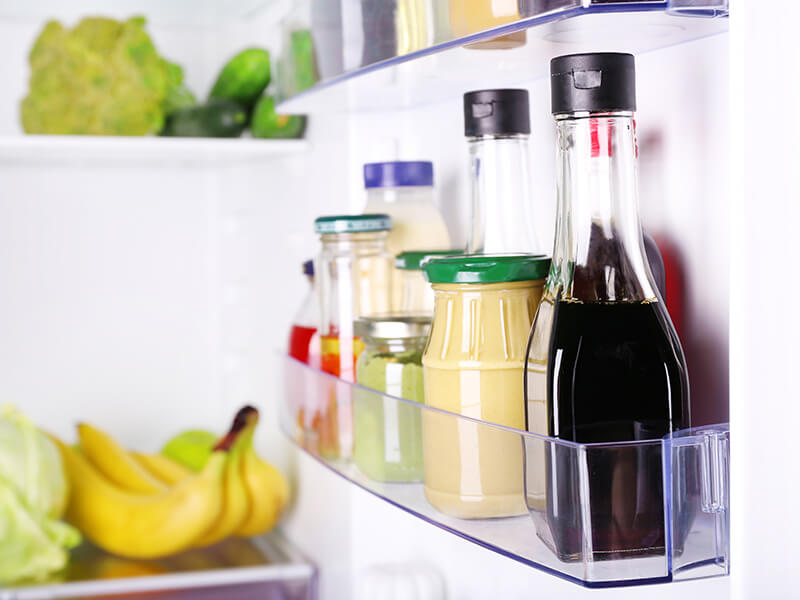
Before jumping into the how-to guide, let me answer this question first. Does soy sauce need to be stored in the fridge? The answer is no. As I have shown you, fermented foods like soy sauce last very long at room temperature. And it won’t spoil unless it is contaminated.
However, if you intend to store it for more than 1 year, then the fridge is a perfect place. A good strategy is to divide the bottle of soy sauce into smaller bottles. You can store one on the kitchen counter and the other in the fridge.
Store soy sauce properly to make this amazing chicken soy sauce dish. Watch this video:
Can You Freeze Soy Sauce?
Soy sauce can be kept at room temperature and in the fridge. Do you think that it can be frozen, too? Practically, you don’t need to freeze it since it can last for a very long amount of time in the fridge.
You can’t freeze soy sauce even if you really want to freeze it. Soy sauce is a liquid-based product, but it contains a high amount of salt. Salt prevents the ice formation process, making the soy sauce stay in the liquid form forever. (1)
So, what should you do with your large batch of soy sauce at home? If it’s too close to the expiration date, I suggest mixing the soy sauce with vegetable broth to make a replacement for beef broth. You’ll be blown away by how good the combination tastes.
FAQs
You nearly reached the end of this post. I hope that you can learn a lot about the shelf life of soy sauce and how to store it properly. In case you still have questions, this is the extra part helping you to find the answer.
Don’t Worry That Soy Sauce Will Go Bad!
Does soy sauce go bad? What do you think about the answer? I have been repeating that soy sauce rarely goes bad, so you don’t have to be too serious about it. As long as you follow the comprehensive instructions that I provided, your soy sauce will be safe for very long.
The only thing that can make your soy sauce no longer edible is outside impurities. They get into the sauce and contaminate it when the lid is off. Therefore, it is crucial that you keep the lid on all the time.
Do you often eat soy sauce? Which way do you choose to store it? I really want to know about it. I am very happy to receive your comment in the box below.
References
- Helmenstine, A., 2021. Here’s How Salt Melts Ice. [online] ThoughtCo. Available at: <https://www.thoughtco.com/how-salt-melts-ice-3976057>
- WebMD. 2021. What to Know About Soy Sauce. [online] Available at: <https://www.webmd.com/diet/what-to-know-soy-sauce#1v>
